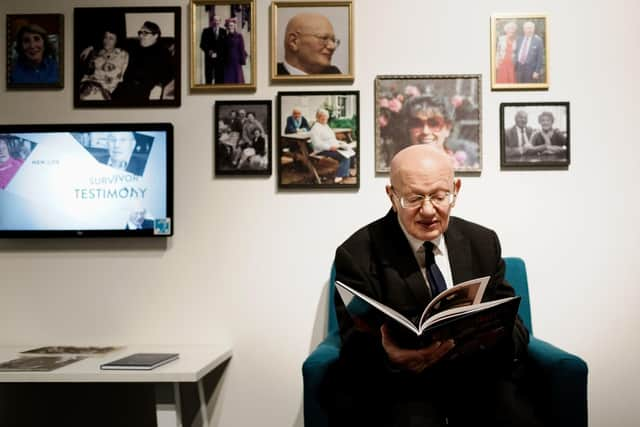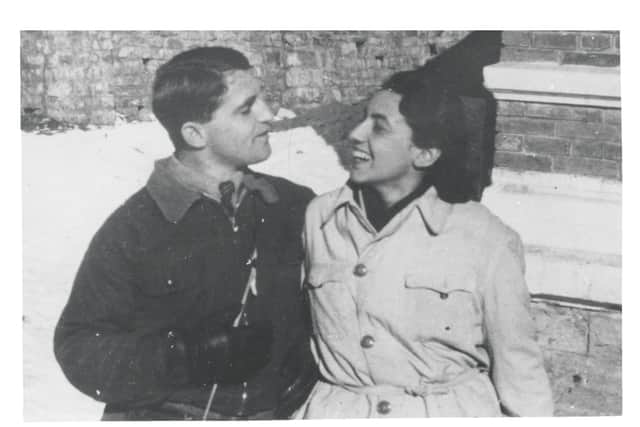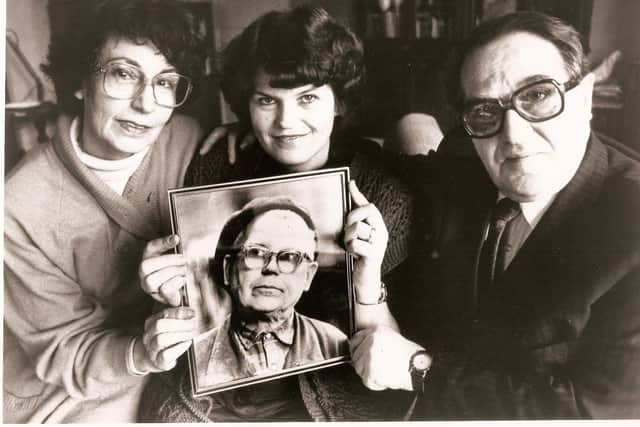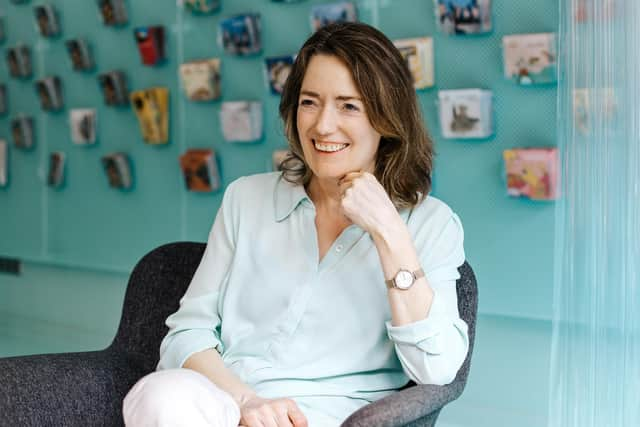Holocaust Memorial Day: Leeds' survivor Martin Kapel recalls night of horror when the Nazis came for him
He was made to march, through the forests of Germany. Others fell beside him, that cold night. And there were whispers, in the dark, that they were soon to be shot.
Today, the 93-year-old remembers those he lost. He survived. His father's family did not.
Advertisement
Hide AdAdvertisement
Hide Ad"History is important," he said slowly. "If we forget these things, we forget the lessons learned. Then, of course, it happens again.


"It is very important that these things should not happen again."
Today marks Holocaust Memorial Day (HMD), honouring millions murdered under Nazi Persecution. Some of the worst atrocities in human history.
Mr Kapel was just a boy, but he could comprehend facts that were happening. Jenny Kagar, whose parents survived nine months hidden in a factory attic, said at first they could not.
Advertisement
Hide AdAdvertisement
Hide Ad"Theirs is not just a story of horror. It's a story of humanity," she added. "In some ways I'm relieved they are not here to see what's happening in the world now. They always hoped that their experiences, dreadful as they were, would serve as a lesson."


Today marks 79 years since the liberation of Auschwitz as the largest Nazi death camp. There are not many Holocaust survivors living today; a witness to history that time takes away.
This week, three survivors attended a special commemoration at the University of Huddersfield's Holocaust Centre North. At the end of the evening they lit the traditional six remembrance candles.
There was Trudi Silman, whose father died in Auschwitz, and who herself escaped Nazi persecution as a child refugee. Liesel Carter, who also fled at the age of just four. And Martin Kapel, a Polish Jew who lived in Germany with his mother and sister. Of the night that changed everything - October 28, 1938 - he can still recall the smallest of details.
Advertisement
Hide AdAdvertisement
Hide Ad"We were asleep in our beds when the Nazis entered our home," he said. "It was the early hours of the morning. We had to go, right then. We didn't know where we were being taken to."


The family was being expelled from Germany into Poland. There was a walk, a bus, a long train journey. Then a march through the forest, in neat, tidy rows.
"We had been warned that we must not speak. Nevertheless, people whispered. The rumour was that we were going to be taken to a lonely place and we were going to be shot.
"We walked the forest path. Our rows of people became ragged. There were, among us, people of all ages. Women, babies. There were also people taken from their hospital beds."
Advertisement
Hide AdAdvertisement
Hide AdMartin was just a boy. He remembers time. It was before 11am when the train first set off, he said. When it arrived near a forest, the station clock said 10 minutes to midnight.


With the first signs of dawn on the horizon, a tiny hamlet came into sight. This was Poland. He discovered later that thousands were expelled from Germany that night. Some 400 died on the journey.
Mr Kapel was eventually to make his way to England on the kindertransport and was fostered with his sister in Coventry. There was a scholarship to grammar school, and then university. After a Chemistry PhD, he taught at the University of Leeds. Mr Kapel still lives in Headingley. His father's family, in Poland, were all killed.
"We have to try prevent such things happening again," he said.
Advertisement
Hide AdAdvertisement
Hide AdThe Holocaust Centre North is housed at the University of Huddersfield. It shares a history of the survivors and refugees who made new lives in the North.
Today, said director Alessandro Bucci, we remember more than six million Jews who were murdered and the victims of more recent atrocities. Cambodia, Rwanda, Bosnia, Darfur.
Genocide doesn't just 'happen' as an isolated phenomenon, he stressed. It's a process that begins with discrimination, with racism and hatred. This year feels particularly poignant.
Somehow, he said, children see it all the more clearer. For many adults, the horrors of the Holocaust are too real, too big yet to quite comprehend.
Advertisement
Hide AdAdvertisement
Hide AdNext year marks the 80th memorial day. War, and 1945, draws back time. Survivors’ voices falter farther away. The centre's work grows more urgent.
Jenny Kagan is chairman. Her father Joseph was the founder of the great Kagan Textiles, of Elland, who made Gannex waterproofs for the likes of Harold Wilson.
He was also a man who, with his mother and new wife Margaret, survived the war hidden for nine months in a six-foot square box in the attic of an iron foundry.
Theirs was a great love story, that bloomed despite the terrors of Lithuania's Kaunas ghetto.
Advertisement
Hide AdAdvertisement
Hide AdJoseph "didn't always live by the rules", recalled Ms Kagan. He had a girlfriend outside the gates and could 'acquire' things when needed; a record player, some food.
On meeting Margaret, he decided they would marry. But she set him an impossible task: she would go out with him only if he could deliver a place of their own, a bottle of vodka, and Tchaikovsky's fourth symphony.
"Two weeks later, she got a note to say he had all three," said Ms Kagan. "That was their first date. From that day on, he had a plan to go into hiding."
The newlyweds, with Joseph's mother, survived over nine months living in a box space that was six-feet square, hidden in the roof of an iron foundry.
Advertisement
Hide AdAdvertisement
Hide AdThey had a saviour, said Ms Kagan, in the factory's foreman Vytautas Rinkevicius.
"Something I've inherited is the belief that extreme situations show the worst of humanity, but also the best of humanity," she said. "For these people to survive, extraordinary things happened, and extraordinary people took extraordinary steps.”
Today matters because in times of great turmoil and trauma, we all look to our past for our lessons, she added.
"It feels very pat to say 'never again. That message is one we can never shout loud enough."